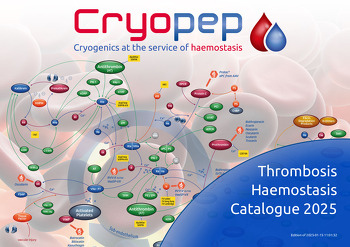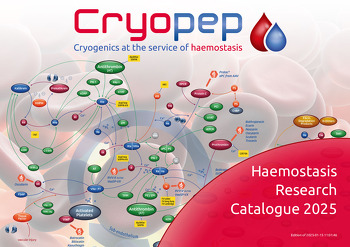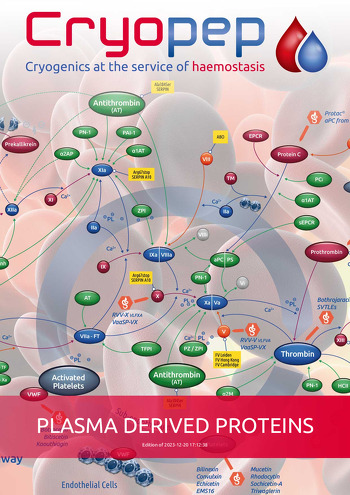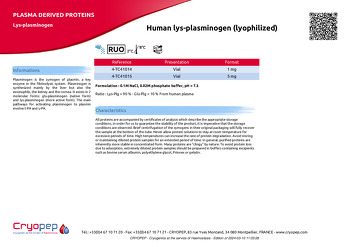HEMOSTASIS COAGULATION RESEARCH REAGENTS PLASMA DERIVED PROTEINS LYS-PLASMINOGEN
Human lys-plasminogen (lyophilized)
Formulation : 0.1M NaCl, 0.02M phosphate buffer, pH = 7.3
Ratio : Lys-Plg > 90 % - Glu-Plg < 10 % From human plasma
Informations
Plasminogen is the zymogen of plasmin, a key enzyme in the fibrinolysis system. Plasminogen is synthesized mainly by the liver but also the eosinophils, the kidney and the cornea. It exists in 2 molecular forms: glu-plasminogen (native form) and lys-plasminogen (more active form). The main pathways for activating plasminogen to plasmin involve t-PA and u-PA.
Documentation
Download the product sheetPrice list, safety data sheets and notices are accessible to our registered customers.
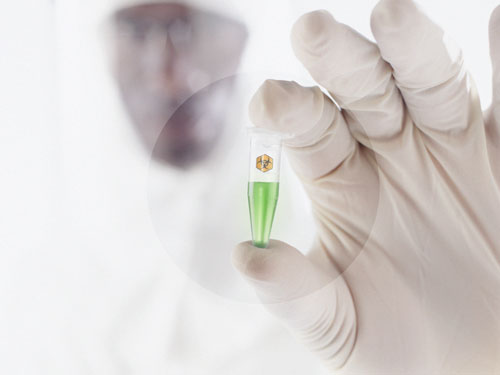




References
| 4-TC41014 | Vial | 1 mg |
| 4-TC41015 | Vial | 5 mg |












